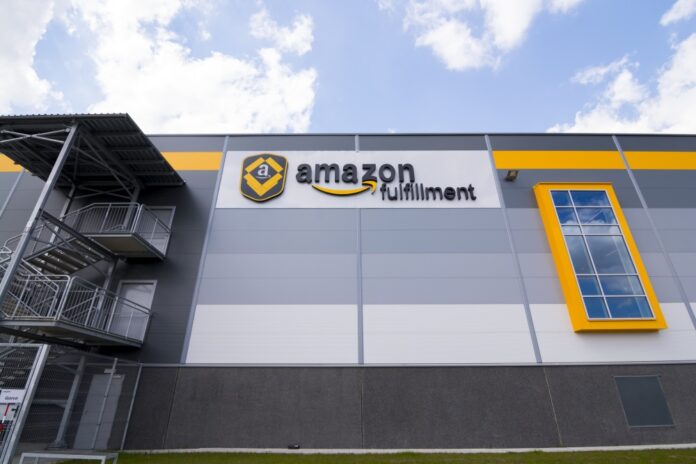Amazon’s new productisation of its own technology is the latest example of its innovative genius, writes Dawn Bushaus.
Using its own internal 5G tech to develop a private 5G service for enterprises is also yet another example of communications service providers (CSPs) being forced to take the back seat in 5G projects that many observers think they should be leading.
But there could be some advantages to being the passenger – like access to customers that operators might not otherwise reach.
“Telcos can look at this [Amazon’s announcement] as competitive because it competes for the same dollars, but they can also look at this as additional investment from a partner in simplifying the deployment of private 5G,” writes Roy Chua, Founder and Principal at AvidThink, a US-based independent research and advisory service.
The key word in Chua’s comment is “simplifying”, and it’s what Amazon does best. Indeed, Amazon created Amazon Web Services (AWS), which is now a half-trillion-dollar business, by simplifying and productising its own IT environment using APIs [which, incidentally, were cited by AWS for the outage it suffered on 8 December].
This time, AWS has turned the 5G network used in Amazon fulfilment centers into a managed service for enterprises that automates set-up and deployment of a 5G RAN and core network, scaling capacity on demand.
AWS’ CEO Adam Selipsky unveiled the private 5G service at the AWS re:Invent show in late November, calling it “shockingly easy” to use. The service, which is available to preview in the US using Citizens Broadband Radio Service (CBRS) shared spectrum, is already being used by DISH Network, Koch Global Services and Amazon Fulfillment.
Muddying competitive waters
The announcement could, indeed, spell trouble for communications service providers (CSPs) because it puts them in the all-too-familiar position of competing with their own supplier to deliver mobile private networks (MPNs) to enterprises.
Operators already must compete with their network equipment vendors including Ericsson, Huawei, Nokia and Samsung.
“In my view this is a big threat for operators because it shows the ambition, scale, and capacity that AWS brings into this emerging market,” Pablo Tomasi, Principal Analyst – Private Networks, Omdia, writes in an email to Mobile Europe. “There could be some partnership opportunities, though this announcement is significant as it puts AWS plus partners (for instance, Athonet and others) directly in competition with operators plus large network vendors.”
Dean Ramsay, Principal Analyst, TM Forum, agrees that AWS is likely to compete with CSPs. “I don’t think that operators are moving fast enough on MPNs, and if we keep seeing more announcements like this with direct competitors…” he says during this recent podcast. “Ericsson, for many years, refused to sell MPNs because it puts them in direct competition with their biggest customers. But that’s over…and they’re going full steam ahead.”
Speaking during the same podcast, TM Forum’s Chief Analyst Mark Newman echoes Ramsay’s worries that CSPs are being edged out of MPNs. He thinks that some operators see MPNs as “a bit of a sideshow”, believing that its more important to offer enterprise 5G services on their macro-cellular networks.
“I think that’s the wrong way of looking at it,” Newman says. “I think in terms of the innovation around new services and new capabilities, that’s all going to start with MPNs. And if you’re not playing in the MPN space now, I think you’ll find it very hard to develop a 5G enterprise business from scratch just on the macro network.”
Making progress
However, despite growing competition there is some evidence that CSPs are gaining ground in delivering private LTE and 5G networks.
The latest research from consultancy Analysys Mason, which tracks MPN deployments worldwide, finds that mobile operators have increased their share of MPN deals significantly during the past year, from just 22% at the end of 2020 to 32% in Q3 2021.
Analysys Mason reports that there are now 256 publicly announced private LTE or 5G networks worldwide.
In 5G networks (versus LTE), operators are particularly strong. “There were 104 announcements in total for 5G networks [in 2021] and…operators acted as the main contractor in 44% of these 5G networks,” says Analyst Ibraheem Kasujee, speaking during a podcast.
The reason operators’ share is increasing is because there are more 5G networks being deployed, he adds, “and operators are more likely to be the main contractor in a 5G network”.
Silver lining?
Some observers believe AWS Private 5G could benefit CSPs by helping them reach new enterprise customers. AvidThink’s Chua believes that AWS will need to partner with CSPs in many deployments.
In an interview with FierceWireless, he describes the system that AWS announced in November as a “starter kit” for experimentation and says it is unclear how well it can scale.
Chua believes AWS will tap mobile operator partners to scale beyond small deployments. He also points out that while CBRS can be used for private 5G deployments in the US, regulation in other countries likely will necessitate that AWS partner with a mobile operator to deliver the service.
“AWS’s Private 5G approach gives AWS a way to rope in telco partners when more sophistication and scale are needed – detailed RF planning, large deployments, spectrum licensing,” he writes in his blog.
While Omdia’s Tomasi sees the Amazon announcement as primarily competitive with telcos, he says it is not too late for mobile operators to carve out a role for themselves in private 5G.
“This is still an early-stage market, so there is an opportunity for operators to accelerate in private 5G, however they have few challenges ahead,” he writes.
“For instance, they are not trusted priority partners, nor [do] they have in-depth vertical knowledge in many verticals (for example, manufacturing). They have been and still are hesitant to embrace private networks, and to accelerate they need to invest in a highly potential yet still modest market.”



